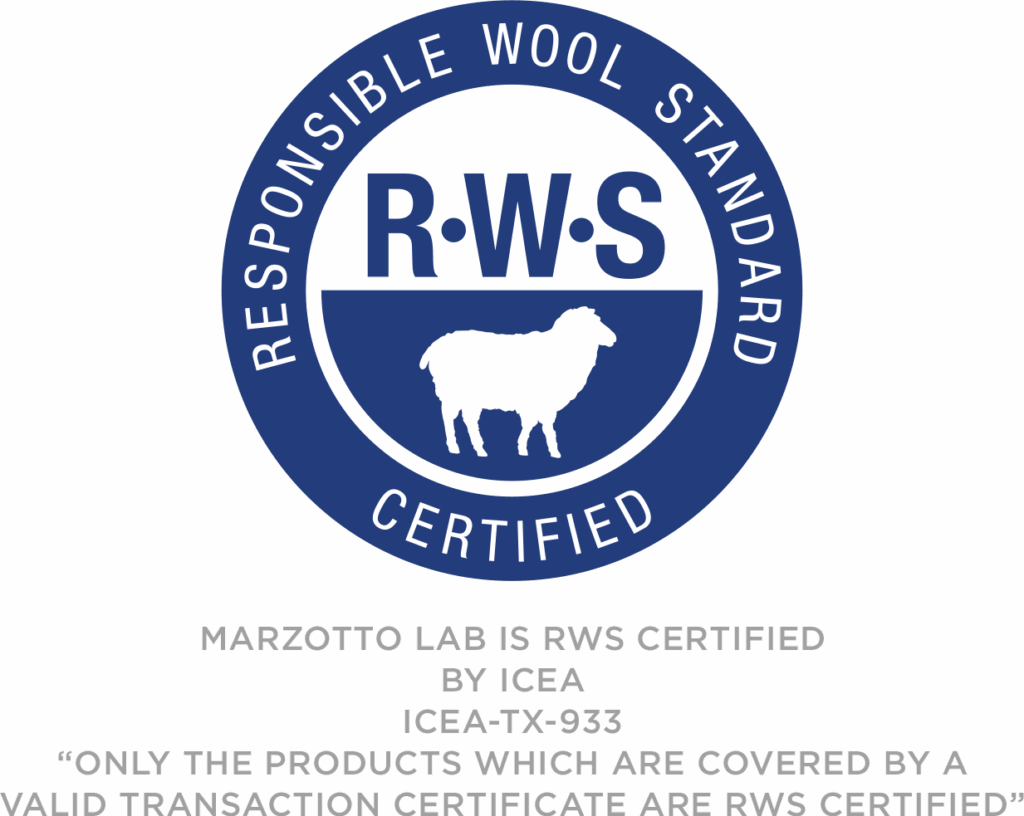
The Responsible Wool Standard is a voluntary standard developed and managed by Textile Exchange, a global non-profit organization promoting sustainable practices in textile production.
What does it cover?
- Certification classes: from the farms to the final seller in the business-to-business context;
- Animal welfare: verifies that sheep are managed according to the “Five Freedoms” (freedom from hunger, thirst, discomfort, pain, and fear), including the ban on mulesing;
- Land management: promotes sustainable agricultural practices to conserve soil, biodiversity, and natural habitats;
- Worker welfare: includes social criteria and working conditions along the supply chain;
- Traceability: certified wool is identified through the Content Claim Standard (CCS) chain of custody system, with transaction certificates at each stage.
Main objectives
- Recognize best agricultural practices, encouraging responsible animal and environmental behavior.
- Ensure that wool comes only from producers who excel in animal welfare and environmental management.
- Guarantee complete traceability throughout the entire supply chain, right down to the final product.
- Offer credible certification to support transparent communication and build trust between brands and consumers.


